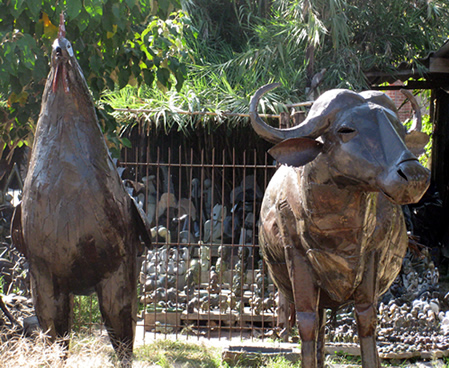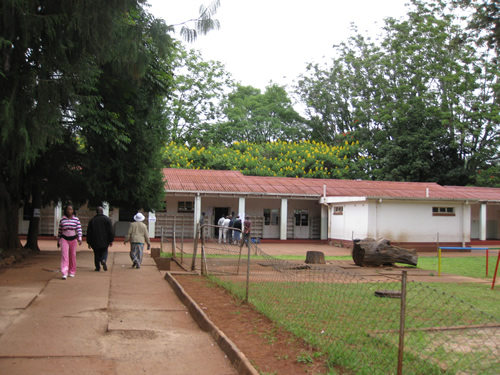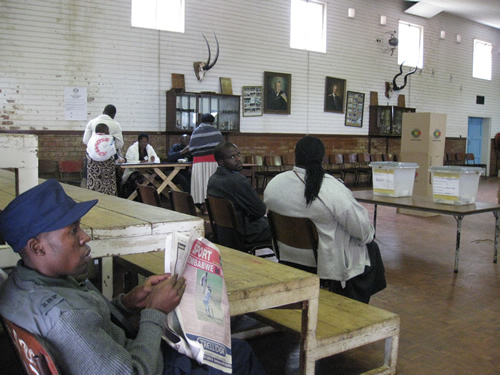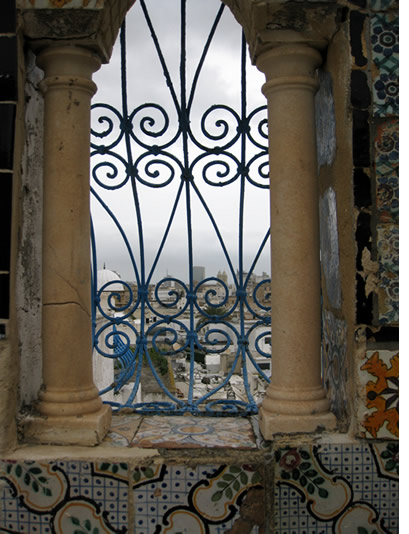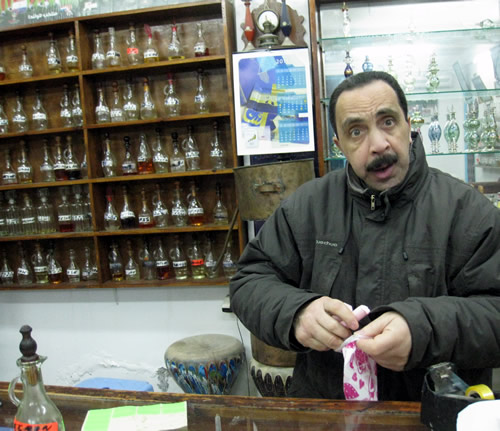It’s hard to believe that Beatrice Mtetwa has this afternoon been remanded in custody until Apr 3 by Magistrate Gofa – in fact it’s a national disgrace.
Read this piece by Nicole Fritz – Director of the Southern Africa Litigation Centre, published in the Mail & Guardian
Beatrice Mtetwa’s arrest shows all is not well in Zim
http://mg.co.za/article/2013-03-20-00-beatrice-mtethwa-arrest-shows-all-is-not-well-in-zim
Beatrice Mtetwa is paying the price of resisting authoritarianism – she is spending her third night detained in a Harare police cell.
“You know this has to be done, somebody has to do it, and why shouldn’t it be you?” That is Zimbabwe’s most prominent human rights lawyer Beatrice Mtetwa’s matter-of-fact explanation for why she does the work she does.
Some might say that doing the same thing over and over – as Mtetwa does in providing legal defence in virtually every high-profile, politically motivated case in Zimbabwe – and expecting different results is the definition of insanity. In the context of Zimbabwe, it is the price required to resist authoritarianism.
At present, Mtetwa spent her third night detained in a Harare police cell, ostensibly for “obstructing the course of justice”.
In fact, she sought to provide assistance to a client, Thabani Mpofu, a top official in the prime minister’s office when his home was raided on Sunday morning, demanding of the police that they produce a search warrant.
As Mtetwa explained: “The view I take is that [the police] have been obstructing me in my duties as a lawyer. I have a client whose rights have been violated, and I am unable to help him because I am now an accused myself.”
More revealing than the arrest itself were the developments that followed. Throughout Sunday police indicated to Mtetwa’s lawyers that she would be released. Only late in the day, when it seemed unlikely that her lawyers could secure an urgent court hearing, were they informed that police intended to pursue the charges.
As it happened, her lawyers – Zimbabwe Lawyers for Human Rights – were able to file an urgent application seeking her release. The order was granted by the high court just before midnight.
Her lawyers then attempted to serve the order on the various responsible parties but were deliberately frustrated as police transferred Mtetwa from one police station to another in order to avoid compliance.
As of Tuesday morning, having spent two nights in police detention, Mtetwa remains in custody.
There are several aspects to note about the pedestrian illegality with which the Zimbabwean police conducted themselves: firstly, this was not a raid specifically directed at Mtetwa.
She was collateral damage – caught up in action directed at officials from Prime Minister Morgan Tsvangirai’s office. There is no comfort to be drawn from this fact. Were Mtetwa to have been a direct target, deemed a sought-after antagonist, the police’s shameless flouting of the law might be more explicable. That the illegality regarding Mtetwa was opportunistic only points to how widespread and endemic the impunity enjoyed by police and the security sector is.
Secondly, Mtetwa’s arrest comes on the heels of a referendum to endorse a new constitution that, whatever its other limitations, contains strong protection of the rights of those arrested and detained. Constitutions are works-in-progress, to be given vigour and dimension by those who seek to uphold and extend their protections. Mtetwa might have been relied upon to breathe life into the new constitution. But without a clear and unambiguous departure from a past characterised by harassment and intimidation of human rights defenders and by impunity for Zimbabwe’s police and security sector, the promise of the new constitution will be laid to waste – its protections made impossible to realise.
Finally, Mtetwa’s treatment will not be unfamiliar to her. She knows well the modus operandi of the police. Mtetwa has described the experience of circling police stations on foot, calling out for her clients because police routinely denied holding them in order to deny them legal access. Only last week Mtetwa accompanied Jestina Mukoko of Zimbabwe’s Peace Project to Harare Central after police announced they were staging a hunt for Mukoko on the specious grounds of her running an “unregistered organisation”. In 2008 Mukoko was abducted by state security agents, tortured and detained for several months. Mtetwa has herself been brutally beaten by police on two occasions.
With Mtetwa in police detention, her court ordered release flagrantly ignored, it is hard to imagine that anyone can credibly contend that, as matters stand, there exist realistic prospects for free and fair elections later this year. But if concerned observers outside Zimbabwe can afford such enervating fatalism, it is not an option available to those inside Zimbabwe.
As Precious Chakasikwa of Zimbabwe Lawyers for Human Rights remarked: “For every Beatrice Mtetwa that these state agents and institutions put behind bars and attempt to embarrass, humiliate and punish without lawful cause, there are 10 other human rights lawyers waiting to take up the mantle.” As they must, if there is ever to be a different outcome.
Nicole Fritz is the director of the Southern Africa Litigation Centre.



